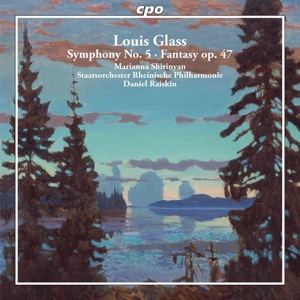Theosophy is bad for music. Just ask Scriabin–look where it got him. Danish composer Louis Glass (1864-1936) evidently got into it around 1910, just in time to compose his Fantasy for Piano and Orchestra Op. 47. The piece starts with a brass fanfare, and then spends 25 minutes doing absolutely nothing, going nowhere. The solo part consists largely of mind-numbing sequences that repeat endlessly, losing energy on the way to a quiet ending. Soloist Marianna Shirinyan plays it nicely, but I wouldn’t bank my career on this performance if I were her.
Ten years later, Louis Glass wrote his Fifth Symphony, answering the musical question: How do you ensure that your next major work gets consigned to permanent oblivion without anyone having to listen to it?
Step 1: Call it the “Swastika” Symphony.
Step 2: Step 1 is sufficient.
Actually, Glass meant “Swastika” in terms of its ancient meaning, specifically, as a sort of “circle of life” symbol. He obviously couldn’t have known what would become of it later, but it really doesn’t matter because the music is as dull as the nickname is provocative. That’s the real problem. Its style is Leipzig school conservative with lots of non-functional, chromatic harmony tossed in. Like the Piano Fantasy, the music has no muscle or dramatic tension. It just sits there. Every so often, as in the first movement’s second subject, or the start of the finale, an attractive diatonic tune reminds us of what Glass ought to be doing, but won’t for any length of time.
This symphony has been recorded at least two or three times previously, in such less-than-promising places as Plovdiv, or the studios of the South African Broadcasting Company. It isn’t that those earlier versions are terrible. Rather, it’s helpful to hear a performance with known forces so that you can determine if the music really is as dull as it sounds. Now we know. It is. There is nothing in this performance that you can point to and say that it doesn’t do the music full justice. The simple truth is that it doesn’t matter.
































